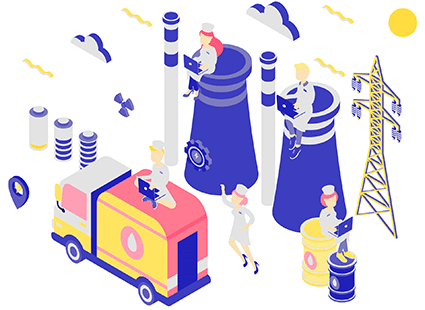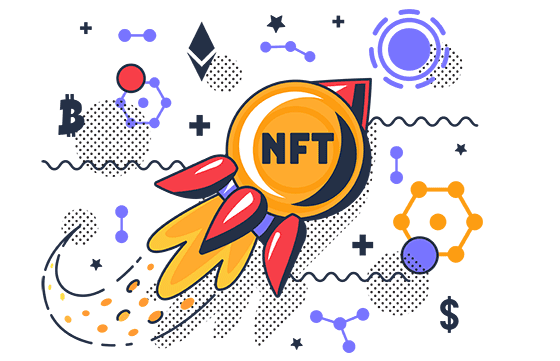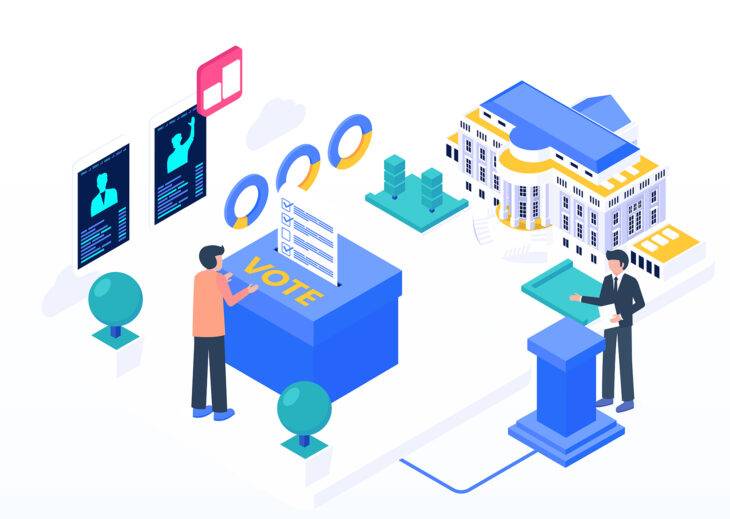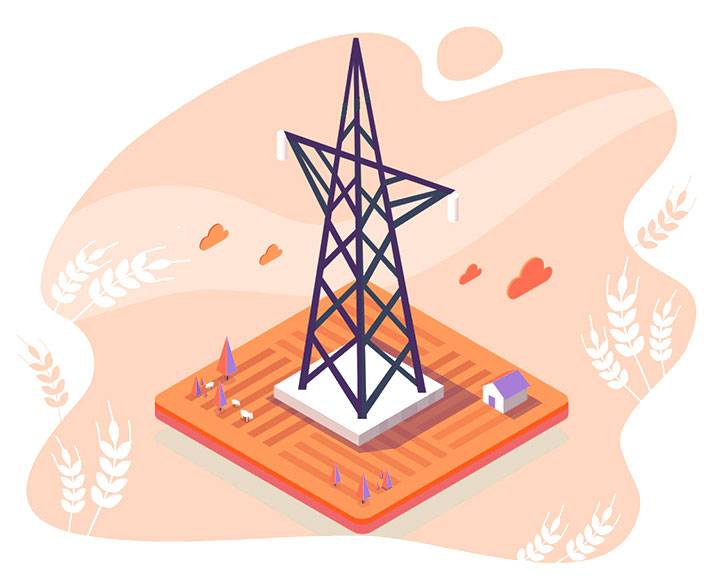Blockchain technology can completely revolutionize the energy industry. Innovations such as rooftop solar panels, electric cars, and smart metering have continuously accelerated the energy market. Through its smart contracts and system interoperability, the Enterprise Ethereum blockchain now positions itself as the next rising technology to drive growth in the energy sector. Energy and sustainability are two of the numerous use cases for blockchain that are frequently overlooked. The World Economic Forum, Stanford Woods Institute for the Environment, and PwC, on the other hand, published a joint research outlining more than 65 present and potential blockchain use-cases for the environment. These application cases include developing new business models for energy markets, managing real-time data, and transferring carbon credits or renewable energy certifications to the blockchain.
By tracking the chain of custody for grid items, distributed ledger technology can enhance efficiency for utility companies. Aside from provenance monitoring, blockchain provides one-of-a-kind options for renewable energy distribution.
The deployment of Enterprise Ethereum solutions can assist legacy energy sectors like oil and gas. Blockchain technology has the potential to improve complex systems with numerous participants. Petroleum, for example, is one of the most traded commodities, necessitating a network of refiners, tankers, jobbers, governments, and regulatory agencies. Siloed infrastructures and many process inefficiencies plague the intricate network of players. Because of blockchain technology’s capacity to cut costs and eliminate detrimental environmental consequences, large oil and gas conglomerates are looking to invest in and adopt it.
Privacy and trade secrets are fundamental to oil and gas firms. These private blockchain networks provide pre-approved parties with data permissioning and selective consortium access. Private and consortium blockchains serve as a stopgap solution until public blockchains can include the privacy features that companies want.
The following are the primary advantages of blockchain in the energy sector:
• Cost savings
• Environmental stewardship
• Enhanced openness for stakeholders without jeopardizing privacy
What are the Blockchain Application Cases in Energy?
ConsenSys Solutions collaborates with a variety of blockchain solutions that may be adapted to suit specific energy or sustainability applications, such as the following:
• Distribution of wholesale electricity
• Energy trading on a peer-to-peer basis
• Data management for electricity
• Trading in commodities
• Utility companies
• Exploration for oil and gas resources
• Storage and transportation of oil and gas resources
• Improved resource management and sales.
What influence does blockchain have on wholesale power distribution?
Companies attempting to integrate blockchain technology into wholesale power distribution concentrate on connecting end customers to the grid. Consumers may trade and acquire energy directly from the grid rather than through merchants using blockchain technology and IoT devices.
Grid+ is a blockchain-based energy firm that specializes in wholesale energy delivery. Retailers have been recognized as the primary cause of inefficiencies in the consumer electricity market by the firm. Retailers own only a tiny portion of the grid infrastructure. Instead, they solely manage the services that blockchain technology can replace, such as invoicing and use metering.
The addition of a blockchain-based platform to merchants can cut customer bills by up to 40%. By directly linking consumers to the grid, Ethereum enables users to purchase electricity from the grid at the price they choose. As a result, the energy market is more equal and stable, with reduced electricity bills.
What influence does blockchain have on peer-to-peer energy trading?
While wholesale energy distribution is a crucial application for many businesses, it is not the primary focus of all energy organizations. According to Wood Makenzie’s Blockchain In Energy study, 59 percent of blockchain energy initiatives are developing peer-to-peer energy marketplaces. A peer-to-peer energy market is a network of people who trade and buy excess energy from one another. These energy markets benefit the public because they decrease control from central authorities, such as wholesale organizations.
The majority of businesses use enterprise editions of Ethereum. The Energy Web Foundation, for example, uses Ethereum, Truffle development tools, and Gnosis multi-signature wallets to construct their platform. As more nations achieve energy parity, the cost of renewable energy becomes equal to or lower than the cost of typical retail energy. People that generate their own energy will be able to exchange it with their neighbors and peers. Power Ledger, an Australian business, has linked communities together to form “microgrids.” A microgrid is a collection of linked loads and dispersed energy supplies. Microgrids presently exist as a layer on top of the national grid, but they can theoretically be distinct and self-sufficient entities. Many blockchain energy startups envision a future with more extensive and completely dispersed peer-to-peer grids.
What influence does blockchain have on power data management?
Blockchain technology has the potential to give customers more efficiency and control over their energy sources. Furthermore, an immutable ledger allows for safe and real-time revisions of energy use data. Market pricing, marginal costs, energy law compliance, and fuel prices are all examples of energy data. The Chilean National Energy Commission (CNE) stated that it has begun an energy-focused blockchain initiative. The Ethereum blockchain will be used by the government agency to record, store, and track energy data.
Data is frequently altered deliberately or inadvertently misreported and withheld. Intentional corruption and unintentional clerical mistakes can have a negative financial impact on governments and businesses. For the sake of transparency, the CNE will make transaction and pricing information available to the public. The openness of public blockchains limits the possibility of financial or data abuse even further.
What influence does blockchain have on commodities trading?
Another area that might be disrupted by blockchain technology is the gas and energy commodities trading business. Companies have spent millions of dollars developing bespoke trading systems designed specifically for the energy trading sector. The expenses of maintaining, updating, and securing these systems are significant. Commodity trading necessitates the upkeep of a giant ledger that records deals and commodity prices at precise points in time. Using blockchain technology to trade commodities would be less expensive and more efficient than present proprietary methods. The blockchain may be programmed with immutability, security, and immediacy, removing the sluggish adaptation of large-scale proprietary systems.
What influence does blockchain have on utility providers?
Electric power companies are vast and complicated businesses that create electricity from power plants, solar farms, and other sources. Utility suppliers do not compete in the same way that financial services or the banking industry do. These companies are more ready to exchange information and data, creating a unique potential for blockchain’s shared ledger.
Greentech Media, a prominent renewable energy industry intelligence organization, has highlighted three ways that distributed ledger technology might help utility companies. Enterprise Before securing data into the blockchain, Ethereum may analyze and validate data from numerous devices at the grid edge. Second, energy providers may use blockchain to build a system for data transactions important to distribution. Finally, distributed ledger technology may be utilized to create a system for exchanging energy among various parties.
What influence does blockchain have on the oil and gas industry?
The use of blockchain technology in oil and gas trading can reduce the expenses involved with the upkeep of multiple trading platforms. Furthermore, blockchain can minimize personnel expenses, data administration costs, data visibility costs, settlement delays, and inter-system communication costs. BTL Group, a blockchain business firm, has completed a pilot project with ENI, BP, and Wein Energie. The pilot showed that using blockchain technology to enable and track gas transfers decreased 30–40% of total expenses. The business intends to test the platform with resources other than gas. Rather than developing a system for each commodity, Enterprise Ethereum allows for the rapid integration of new commodities simply reprogramming the original smart contract.
Thousands of firms make up the oil and gas sector. These businesses are divided into three categories: upstream, midstream, and downstream. A single resource drop can go through hundreds of distinct entities, corporations, processes, and legal agreements.
What influence does blockchain have on the upstream oil and gas sector?
The term “upstream” refers to the areas of the sector concerned with resource development and exploitation. Majors, NOCs (national oil corporations), independents, and oilfield services dominate the upstream oil and gas market. Majors are big oil and gas corporations that own or manage oilfields and wells. Upstream involves the participation of hundreds of parties, all of whom rely on data given by other companies. Blockchain technology is well-suited to large-scale, multi-party data coordination.
What influence does blockchain have on the midstream oil and gas industry?
Midstream refers to areas of the industry that are involved in storing and transferring commodities after they have been extracted. Midstream also entails the administration of extensive transportation networks as well as extensive regulation. Disaster mitigation and infrastructure maintenance can help the midstream oil and gas industry. Because of the high regulation and asset concentration, oil and gas firms must concentrate on risk management. As a result, these businesses stand to gain the most by exchanging knowledge with others in the sector. Blockchain technology excels at multi-stakeholder information exchange, particularly for asset monitoring.
What influence does blockchain have on the downstream oil and gas industry?
Companies that refine resources into numerous final goods or sell items to end consumers are referred to as downstream (i.e., gas stations). Furthermore, downstream management encompasses the management of hundreds of various goods. These items are aimed at different clients, have specific environmental restrictions, and necessitate different modes of transportation. Blockchain-enabled supply chains improve multi-product and large-scale coordination. The capacity of a blockchain technology platform to record and follow supply chains can eliminate massive amounts of waste.















